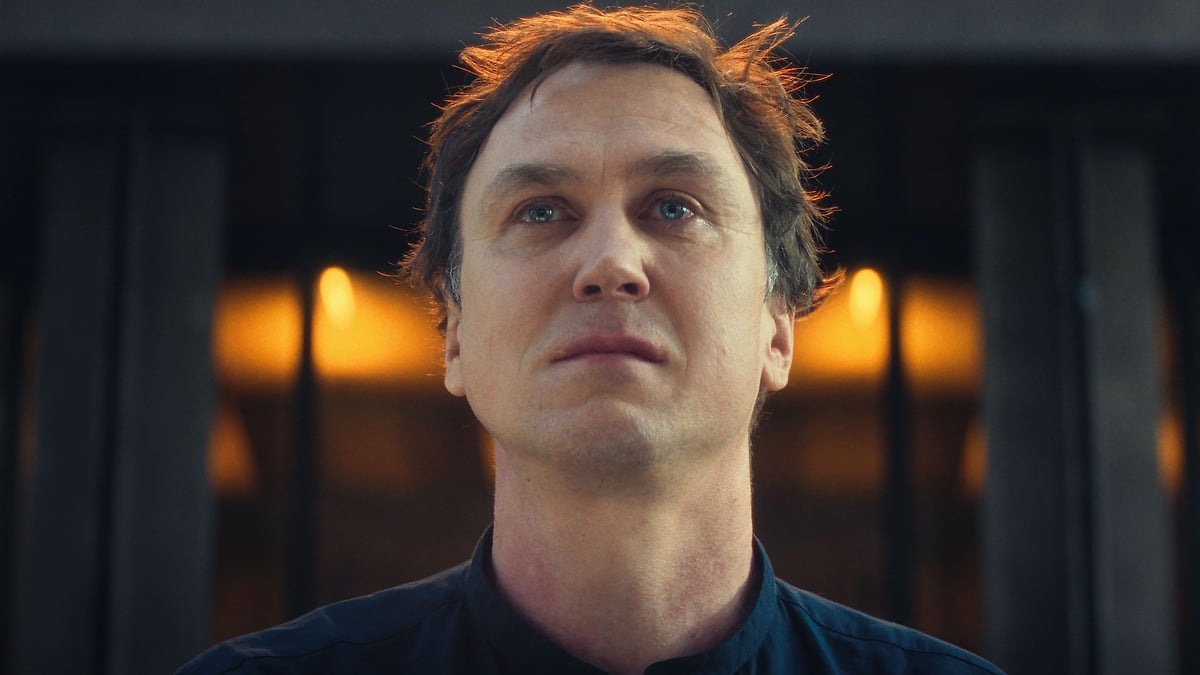




Dir.Wri: Matthias Glaser | Cast: Lars Eidinger, Corinna Harfouch, Lilith Stangenberg, Ronald Zehrfeld | Drama Germany 180′
Reviewed by Ian Long
You think you’ve got problems? Take a deep dive into the word of orchestral conductor Tom Lunies via Matthias Glasner‘s Dying, swim around there for a few hours, and you may want to reconsider. As you stagger, shattered, out of the cinema, your own life might seem positively blessed in comparison.
Tom currently leads a talented youth orchestra which is rehearsing a new piece by his old friend Bernard, an intense, driven, borderline insane composer. The piece is called Sterben (Dying), so we’re in ‘meta’ territory: just as Roxy Music’s Oh Yeah was a song about a song called Oh Yeah and W. C. Handy’s Beale Street Blues was a song about a song called Beale Street Blues, so Dying is a film about a piece of music called Dying. But it’s also about the actual process of dying, and incorporates a fair number of actual deaths (although a lot fewer than the average Jack Reacher movie).
Developing a convincing interpretation of Bernard’s music is proving difficult for Tom. He’s hampered by the incomprehension of his young players for its deep themes, and also by the presence at his elbow of Bernard himself: a fizzing human bomb of a man who looks like Dostoevsky and behaves like Klaus Kinski, poised to fly spectacularly off the handle at the smallest opportunity.
Not only that, but Tom’s elderly parents Gerd and Lissy are both terminally ill, and need to be conducted out of the world with some measure of dignity (but not, in the arid universe of Dying, love). And not only that, but Tom’s ex-girlfriend is having a baby and he’s stepped in to help her with the birth, despite the unwanted presence of the child’s biological father, Moritz. And not only that, but Tom’s loose-cannon sister Ellen is creating chaos wherever she goes.
The film falls into a number of distinct sections introduced by title cards, each focusing on particular characters. Sometimes it doubles back, recapping earlier events from the vantage point of someone new to us. This ‘two steps forward, one step back’ structure can be trying, as some of the story’s events are difficult enough to get through just once.
Dying has some reputation for mixing dark drama with black humour, and this is true at times, although much of the humour is perhaps funnier in theory than it is to witness, as solemn or serious occasions like funerals, orchestral performances and dental operations are painfully ruined by people making fatuous cell-phone calls, coughing and vomiting, or passing out.
Ellen in particular (irresponsible, alcoholic, sexy in a deranged way) brings some off-the-scale crazed energy to a story which begins in the sombre settings of the elderly couple’s apartment and the care home to which Gerd is soon transferred. When we first meet her, she’s waking up alone in a hotel bedroom which turns out to be in Latvia – she isn’t sure which country until she asks someone. Flying to Berlin, she lurches, hung-over, through the city, to put in a shift at her workplace, where she is revealed to be… a dental nurse! Boom-boom.
Just about everyone in the film is damaged, dysfunctional, unable to make meaningful connections with others (this ‘off’ quality begins early, with Issy’s curiously affectless reaction to her husband’s rapid decline). The most recognisably human character is, tellingly, not one of the Lunies. Sebastian, a hapless dentist seduced by Ellen into a boozy fling, tries his best to curb her drinking, but he too is fatally compromised: a married man with two children pursuing an affair with a woman who is hopelessly out of control.
Dying is a well-made film with excellent performances, but at three hours its jaundiced tone – Todd Solondz’s Happiness is a reasonable comparison – demands a lot from an audience. And there are occasional lapses of craft, most notably an interminable sequence when, on the day of his father’s funeral, Tom and his mother finally establish beyond any doubt their loveless disdain for each other. The scene endlessly alternates static shots of Tom, his mother, Tom, his mother, Tom, his mother, Tom… but is it really a lapse, or another deliberate turn of the cinematic thumbscrew? @Ian Long
IN CINEMAS FROM 25 July 2025